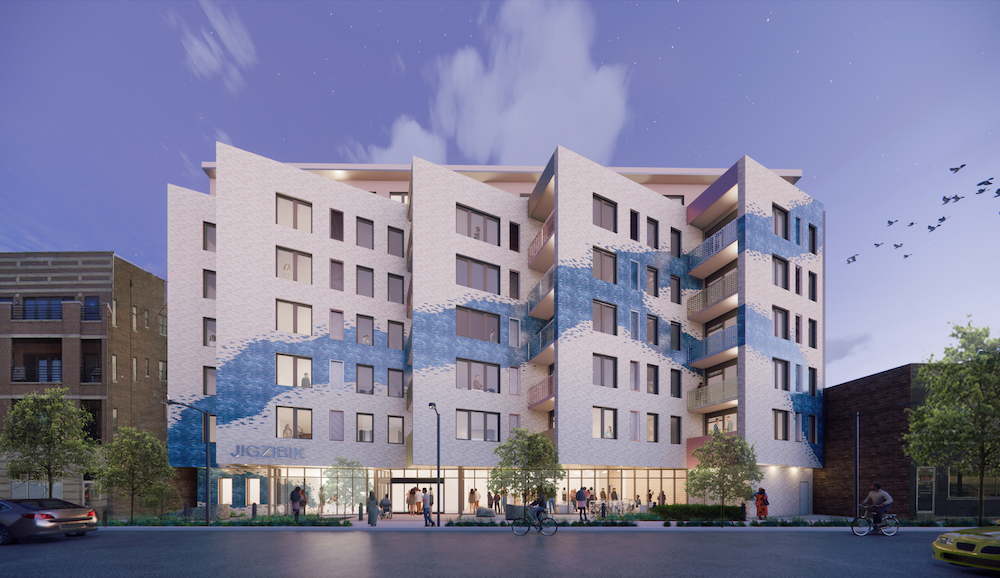
- Details
- By Tribal Business News Staff
- Real Estate
Chicago will get its first affordable housing development tailored to Native American communities with the groundbreaking of Jigzibik, a 45-unit project in the Irving Park neighborhood on the city’s north side.
The $34 million development is a partnership between Native‐led nonprofit Visionary Ventures and affordable housing developer Full Circle Communities, with Canopy Architecture + Design as architect and construction company Skender as general contractor. Jigzibik is a Potawatomi word meaning “at the river’s edge” and was named by the project’s Native American Advisory Council.
The seven-story building will feature 10 studios, 15 one-bedroom, 10 two-bedroom and 10 three-bedroom apartments, plus units for people transitioning out of homelessness. The rental units will serve individuals and families earning between 15% and 60% of area media income. The building serves as a “shared place” for Chicago's Native American community though the apartments won’t be exclusively earmarked for Indigenous neighbors, according to a report by Block Club Chicago.
The project has been in development for seven years, but Chicago's Indigenous community has been working toward culturally sensitive housing since at least the 1970s, according to Visionary Ventures founder Shelly Tucciarelli, a member of Wisconsin's Oneida Nation.
"We put together a Native American advisory council so that we could be very strategic on doing culturally-relevant design and putting community involvement in the design," Tucciarelli told the Chicago Sun-Times.
The ground floor will house offices for Native American-serving nonprofits, dedicated areas for artists and makers, and a computer lab and library for cultural and educational programming, according to a statement by contractor Skender. A rooftop deck will feature space for meditation, intertribal events and community gardening.
Total development costs are estimated at $34 million. Funding sources include $6 million from the Chicago Department of Housing, $2.5 million in Low‐Income Housing Tax Credits, and additional support through housing bonds and philanthropic contributions.
Construction is expected to begin once building permits are secured, and the development could be open as early as next year.
